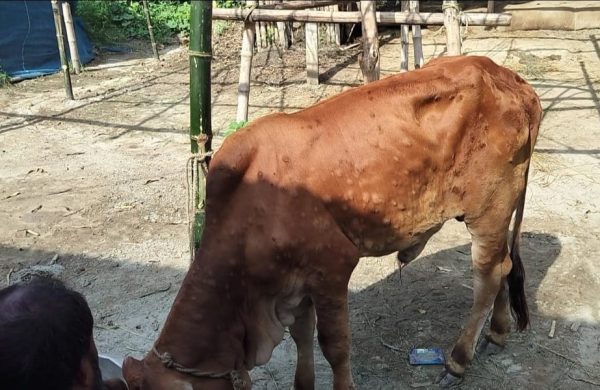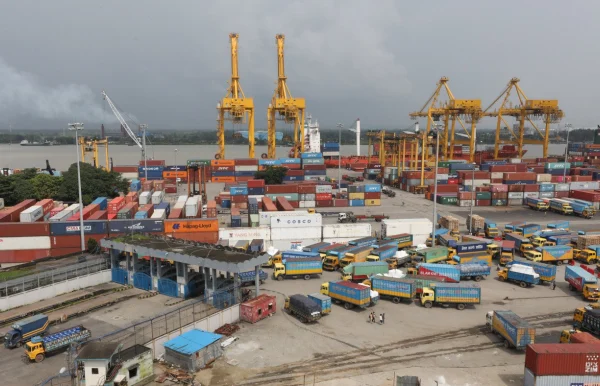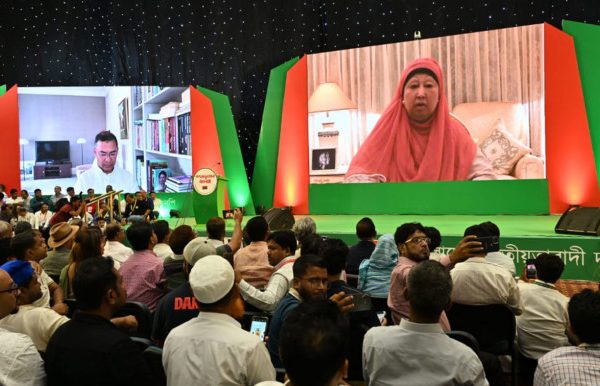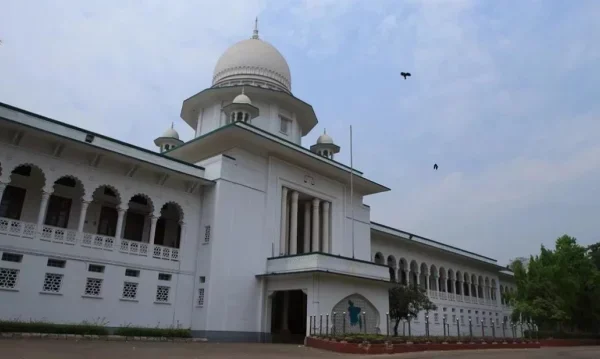Date gets cheaper by Tk35-440 per kg ahead of Ramadan
- Update Time : Tuesday, February 18, 2025

Staff Correspondent:
While price hikes of key Ramadan staples are common, dates – an essential item for Iftar – have bucked the trend this year. Wholesale prices have dropped by Tk35-440 per kilogram over the past one month, ahead of the holy month, offering much-needed relief to consumers grappling with persistently high food prices.
Importers and traders attribute the drop in date prices to the exemption of advance tax, a reduction in customs duty to 15% from 25%, and a lower assessment value in taxation.
According to Rahmat Ali, proprietor of RN General Store at Falmandi, a wholesale fruit market in Chattogram, and several other traders, the price of Mabrom – a soft, moist variety of date fruit from Saudi Arabia – has dropped from Tk1,600 to Tk1,200 per kilogram over the past month, a decrease of Tk400.
Last year, Saudi Arabian Ajwa dates were sold at Tk800-1,000 per kilogram, but the price has now dropped to Tk640-800, a decline of Tk100-200. Medjool dates from Egypt are now sold at Tk920-960 per kilogram, down from Tk1,200-1,400 last year, a decrease of up to Tk440.
Compared to last year, Iraqi Zahidi dates are now Tk350-370 per kg, Iraqi Nagal Tk560-570 and Iraqi Dabbas Tk700, each down by Tk140 per kg. The cheapest dates, known as sack (soft) dates, were sold at Tk 155-160 per kg last year but are now Tk 125-130, down by Tk 35.
Mohammad Zahed, owner of Mayeda Dates, “Demand for dates had surged during the pandemic, driving up imports. However, rising duties and assessment values last year reduced both demand and imports.”
“With the current government lowering duties and assessment values, imports have picked up and prices have already dropped,” he added.
To lower prices, the interim government exempted the 5% advance income tax (AIT) on date imports, reduced customs duty by 10% and lowered the assessment value.
As a result, the import price of dates has dropped, reducing retail prices by Tk35-440. Until fiscal year 2023-24, total import duties stood at 63.60%, including 25% customs duty, 15% value-added tax (VAT), 10% AIT, 3% regulatory duty (RD) and 5% AT.
In fiscal 2022-23, total duty was 59%, whereas until 2022 it was a maximum of 15.6%.
Thanks to the exemption and reduction of customs duties and assessment values, date imports have doubled around Ramadan.
According to the National Board of Revenue (NBR), 44,253 tonnes of dates were imported between July and 15 February of fiscal 2024-25, compared to just 20,263 tonnes during the same period last fiscal year.
According to the Bangladesh Fresh Fruits Importers Association, annual demand for dates in the country is 60,000-90,000 tonnes, with 40,000 tonnes needed during Ramadan.
The NBR has also reduced the assessment value of high-quality dates such as Ajwa, Maryam, Medjool, Mabrom and Amber from $4 to $3.75 per kilogram.
The assessment value for dates imported in refrigerated containers has dropped from $3 to $2.60, while those from Algeria and Tunisia have decreased from $3 to $2.30.
All cartooned dates, except those from Iraq, have been reduced from $2.50 to $2.10, and Iraqi dates in cartons have fallen from $2.50 to $1. Dates in retail packs in cartons have dropped from $2.75 to $2.50, dried dates in sacks from $2.50 to $2, and wet dates in sacks from $1 to $0.70.
Last year, the NBR imposed a duty of $4 per kg on good quality dates, $3 on medium quality, $2.50-$2.75 on low-quality dates and $1 based on import value.
Traders noted that the international purchase price of soft dates in bags ranged from Tk65 to Tk74 per kg, but the NBR applied a duty at an assessment value of Tk120 per dollar.
This higher duty, along with additional taxes, led to a cost of Tk64.41 per kg on low-quality dates, making the final market price rise to Tk138-140 per kg, which consumers had to buy for Tk200 after wholesale and retail markups.
According to importers, the Total Tax Incidence on dates imported in bags was 10% until fiscal 2022-23, with an assessment value of $500 per tonne, leading to a duty of Tk5.45 per kg.
SM Nazer Hossain, Vice President of the Consumer Association of Bangladesh Vice President, said the lower income class was most affected by the increased taxation on both low-priced and high-priced dates, as consumers had to pay more for dates, despite their lower international prices.
However, he believes the reduction in duties will make prices more tolerable for consumers in the upcoming Ramadan.















